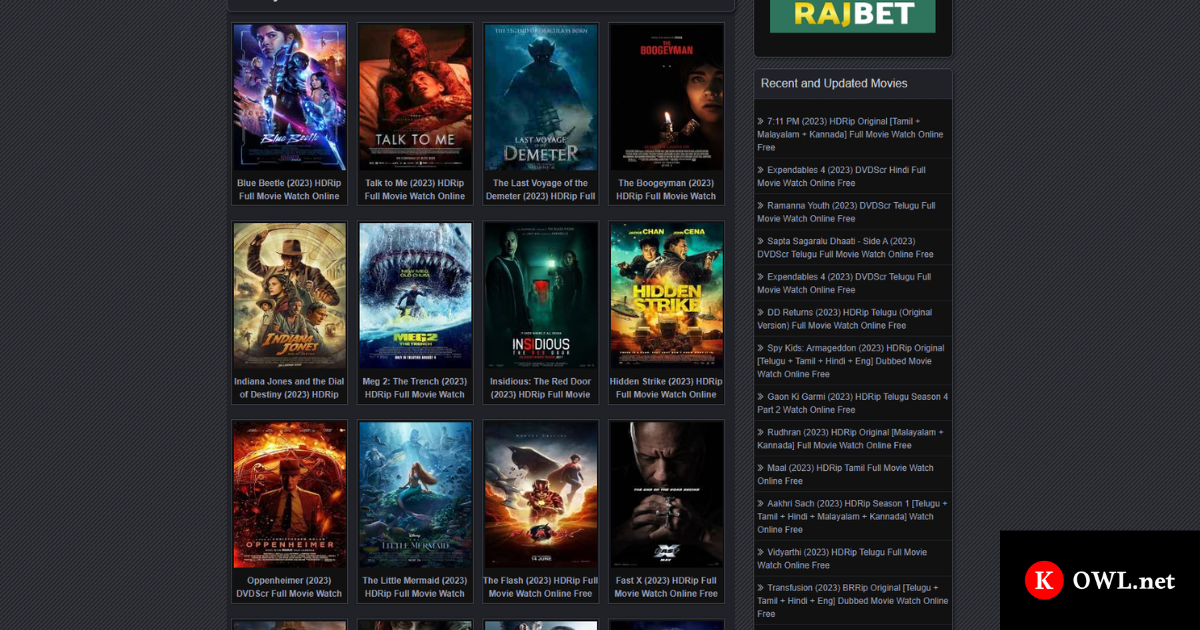Is the allure of instant entertainment clouding the judgment of movie enthusiasts worldwide? The rise of platforms offering free access to copyrighted content, such as the infamous Movierulz, poses a serious threat to the film industry and the very fabric of creative expression.
The digital age has ushered in a revolution in how we consume entertainment. Gone are the days of waiting in line at the cinema or renting physical copies. Now, with a simple click, a vast library of movies and television shows is at our fingertips. This convenience, however, has come at a cost. The proliferation of websites like Movierulz, which operate as illegal distributors of copyrighted material, has created a shadow economy where films are often accessed without any payment to the creators, actors, or studios that invested in them. This issue is not confined to a single region; it's a global phenomenon, affecting filmmakers across Hollywood, Bollywood, and the diverse cinematic landscapes of India and beyond.
The core issue lies in the blatant disregard for copyright laws. Movierulz, and other similar platforms, thrives by providing free downloads and streaming of films, often even before their official release. This illegal activity severely impacts the revenue streams of the film industry. The financial losses suffered by studios and production companies can reach staggering figures, ultimately affecting the future of filmmaking. The creation of high-quality films requires substantial investment, from scriptwriting and production to marketing and distribution. When these investments are not recouped, the entire ecosystem suffers. The industry is forced to cut costs, reducing the scope of projects, and potentially discouraging innovative and ambitious storytelling.
The impact extends beyond the financial realm. The practice of downloading pirated movies degrades the quality of the viewing experience. Illegal websites often host low-resolution versions of films, filled with intrusive ads, and potentially riddled with malware. This diminishes the artistry and craftsmanship invested in the film, as the audience experiences a compromised product that is far removed from the intended vision of the filmmakers. Furthermore, the casual acceptance of piracy normalizes the theft of intellectual property. It sends a message that creative works are not valuable or deserving of financial compensation, which could have a long-term damaging effect on artistic endeavors.
Consider the following table that captures the essence of the issue and its ripple effects:
| Aspect | Details |
|---|---|
| The Core Problem | Illegal distribution of copyrighted movies through platforms like Movierulz. |
| Impact on Film Industry | Significant financial losses for studios, production companies, and other stakeholders. Reduced investment in future projects, affecting quality and innovation. |
| Impact on Viewers | Lower quality viewing experience (e.g., low resolution, intrusive ads). Exposure to malware and security risks. Normalization of the theft of intellectual property. |
| Geographical Reach | Global, impacting filmmakers across Hollywood, Bollywood, and various regional cinema industries. |
| Ethical Considerations | Disregard for copyright laws and creative rights. Erosion of the value of artistic works and the labor of those involved in the filmmaking process. |
| Legal Status | The distribution and downloading of copyrighted movies through these platforms is illegal and carries the risk of prosecution in many jurisdictions. |
The recent efforts to block Movierulz and similar websites, by authorities and internet service providers, are indicative of the growing recognition of the severity of the issue. However, blocking these sites is a game of cat and mouse, as new proxies and mirrors quickly pop up to evade restrictions. The challenge is multifaceted, demanding a comprehensive approach, including legislation, enforcement, and education. One of the significant challenges in tackling movie piracy lies in its accessibility and the perception of minimal risk.
The rise of streaming services, such as Netflix, Amazon Prime Video, and Hotstar, offers a legal and convenient alternative to piracy. These platforms provide access to a vast library of movies and television shows, at a reasonable cost, and with high-quality viewing experience. By subscribing to these services, audiences can enjoy content without infringing on copyright laws. This shift towards legal streaming is a positive development, providing consumers with greater options for entertainment while also supporting the creators and distributors of the content.
The appeal of the latest movies often drives the demand for illegal downloads. For example, upcoming Telugu movies scheduled for release in 2025 are a key focus, but websites like Movierulz are not the right places to find them. The excitement surrounding new releases with prominent actors, such as Prabhas, Kriti Sanon, and Saif Ali Khan, should drive audiences toward the legal channels of viewing. These actors are involved in modern adaptations of popular stories like the Ramayana, which further adds to the hype. The focus of the audience needs to be on platforms that legally support the film industry.
The Kannada film industry also provides another example. The popularity of Kannada movies in 2023, as highlighted by sites like Etimes, indicates a growing appetite for regional content. Films like "Kaatera," "Kranti," and "Kabzaa" have enjoyed considerable success. The popularity of these films shouldn't be overshadowed by illegal channels.
It's imperative to remember that accessing films through piracy websites is a legal risk. Furthermore, these platforms often host malicious software. The convenience of free access should not come at the expense of personal security. Legal methods of viewing offer a secure and quality experience.
The ethical responsibility of the audience plays a critical role in combating the tide of film piracy. The individual choice to support legal platforms, to respect copyright laws, and to discourage the use of illegal streaming services is the most effective tool against this trend. Moreover, media literacy is necessary, helping viewers distinguish between legitimate content sources and illegal ones. Increased awareness of the consequences of piracy will likely lead to a change in behavior.
The fight against platforms like Movierulz, is a continuous one. It requires a combined effort from governments, legal authorities, the film industry, and the audience. It's a battle to preserve the creative freedom and ensure the industry's financial health. By choosing legal, ethical, and safe content consumption methods, the audience becomes a vital part of this effort.
Ultimately, the future of the film industry depends on the conscious choices of each movie enthusiast. Choosing to support legal channels means not only gaining access to quality entertainment but also upholding the values of creativity, respect for intellectual property, and the economic sustainability of an industry which brings joy and entertainment to countless millions.


